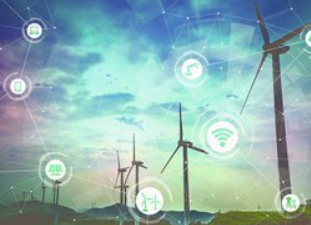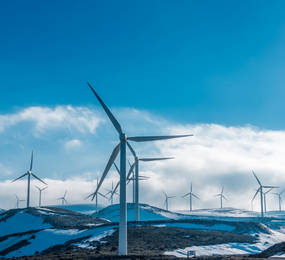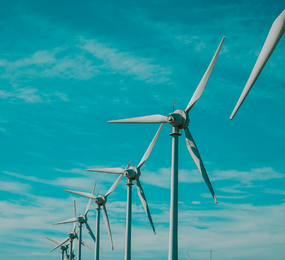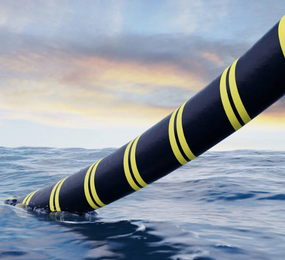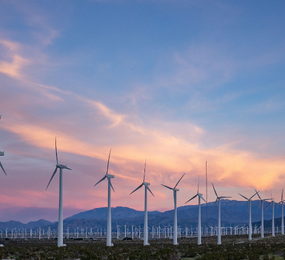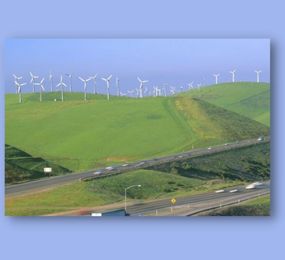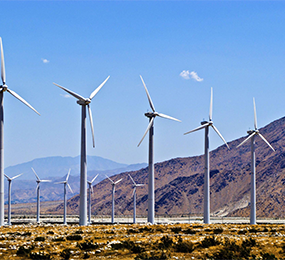Renewable energy sources have become an indispensable part of the global energy transition, and among them, wind power stands tall as a leading contender. The advancement of windpower technologies has revolutionised the energy landscape, offering a sustainable, clean, and abundant source of electricity. As we enter the digital age, the integration of data and digital innovations has further propelled the windpower industry, optimising its efficiency, reliability, and overall performance. In this article, we delve into the world of windpower, exploring its key principles, technological advancements, and the role of data and digital innovation in shaping its future. Join us at the 5th Edition Windpower Data and Digital Innovation Forum on 5th-6th March 2024 in Berlin, Germany, as we unravel the exciting possibilities of windpower in the years to come.
The Rise of Windpower
Harnessing the power of the wind is not a new concept. Throughout history, wind has been utilised to grind grains, propel ships, and power various mechanical systems. However, it is in recent decades that windpower has truly emerged as a reliable and sustainable source of electricity generation. The growth of wind energy installations worldwide has been remarkable, with capacity increasing at an unprecedented rate.
Wind turbines, the primary technology used for windpower generation, operate on a simple principle: converting the kinetic energy of the wind into electrical energy. Modern wind turbines consist of three key components: the rotor with two or three blades, the nacelle housing the generator, and the tower supporting the turbine. When the wind blows, it causes the rotor blades to rotate, spinning the generator and producing electricity. The generated electricity is then transmitted to the grid for distribution.
The windpower industry has witnessed remarkable technological advancements in recent years. Turbine designs have become more efficient, with larger rotors capturing more wind energy. Innovative blade designs and materials have improved aerodynamics, allowing turbines to operate in lower wind speeds and reducing noise levels. Furthermore, advancements in control systems have enhanced turbine performance, enabling operators to optimise power output and maximise energy production.
The convergence of data and digital innovation has opened up new frontiers for the windpower industry. With the advent of Internet of Things (IoT) technologies, wind turbines are now equipped with sensors and monitoring systems that collect vast amounts of data in real-time. This data provides valuable insights into turbine performance, enabling operators to optimise maintenance schedules, detect anomalies, and enhance overall operational efficiency.
Furthermore, digital solutions such as predictive analytics and machine learning algorithms are being deployed to optimise turbine performance, improve energy forecasting, and enhance the integration of windpower into the grid. The utilisation of digital twin technology, which creates virtual replicas of wind farms, allows for advanced simulations and predictive modelling, enabling operators to make informed decisions regarding maintenance, power production, and grid integration.
As the world strives to decarbonize its energy systems, windpower is expected to play a pivotal role in meeting the increasing global energy demand. The continued advancements in wind turbine technology, coupled with the integration of data and digital innovations, will further enhance the efficiency and reliability of windpower generation. Additionally, offshore wind farms, harnessing the strong and consistent winds at sea, offer immense potential for future expansion.
Windpower has come a long way, evolving from a traditional method of harnessing the wind to a cutting-edge industry driven by data and digital innovation. The 5th Edition Windpower Data and Digital Innovation Forum in Berlin, Germany, on 5th-6th March 2024, will serve as a platform for industry leaders, researchers, and policymakers.
To register or learn more about the Forum please check here: https://bit.ly/430gLPP
For more information and group participation, contact us: [email protected]


